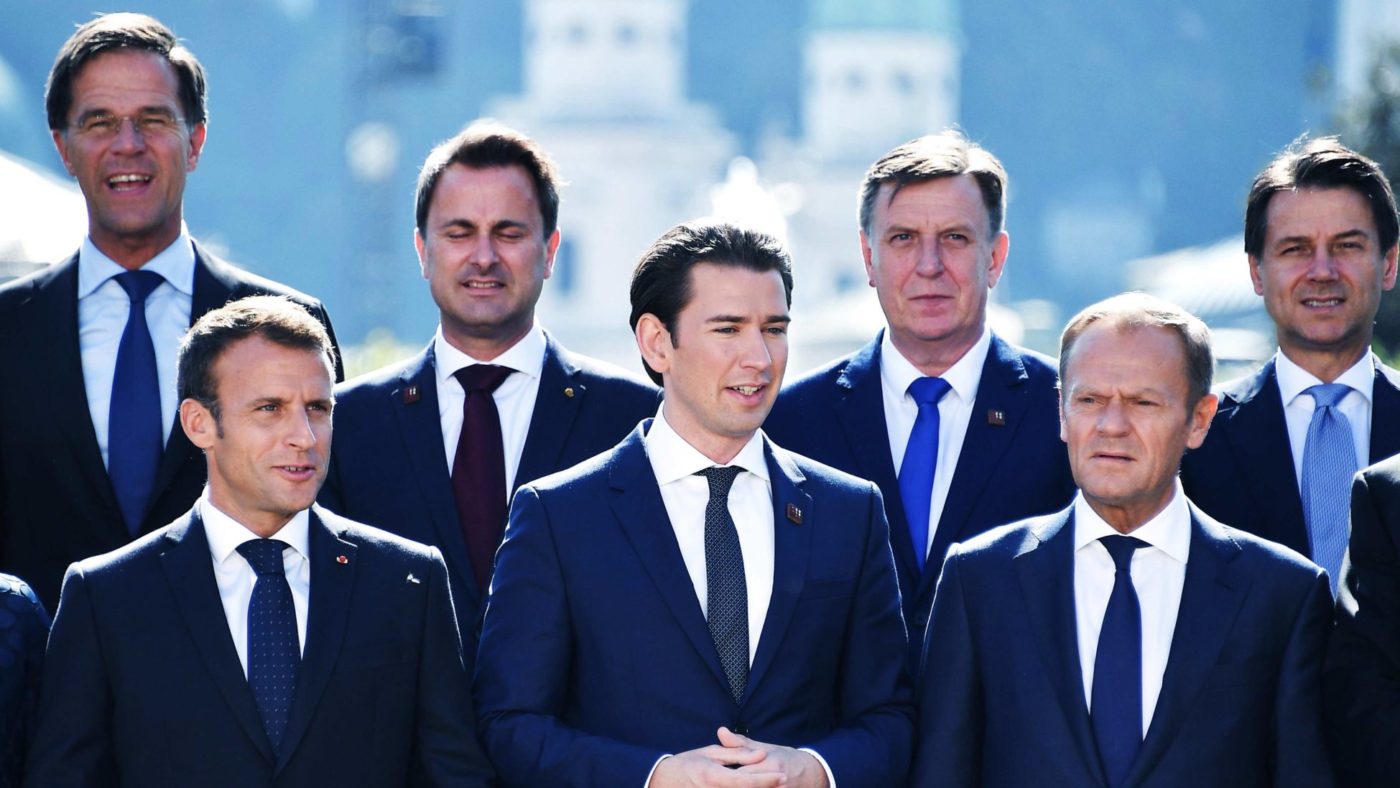Theresa May has returned from the European Council Salzburg bruised, but not broken. In the latest wholly predictable twist in the Brexit saga, the Council’s president, Donald Tusk, sternly pronounced that the Chequers plan “will not work”.
Even more dismissive was France’s arch-federalist president, Emmanuel Macron, who labelled Leave campaigners “liars” and ridiculed those who suggest they can “easily live without Europe”.
In a follow-up statement from Downing Street yesterday, Mrs May’s anger was palpable. “Throughout this process I have treated the EU with nothing but respect,” she declared. “The UK expects the same. A good relationship at the end of this process depends on it.”
It was fitting in a way that Macron’s comments came exactly 30 years since Margaret Thatcher’s Bruges speech warned of the creeping “federalist and protectionist” tendency she saw taking over Brussels. Surveying Europe today, with its single currency, constitution and plans afoot for a military force, her fears appear well-founded.
While it has become a touchstone for Eurosceptics, the Bruges speech was far from anti-European. As Kai Weiss set out on CapX this week, Thatcher wanted a Europe of mutually interested, economically liberal nation states working together.
Where she drew the line was in trying to turn an essentially economic arrangement into a “utopia” which few citizens had asked for. Were she around today, the original “bloody difficult woman” would surely be appalled at a Europe with a single currency, its own constitution and even plans afoot for a joint military force. More to the point, she would surely be fighting tooth and nail against the likes of Macron and their vision of an ever more integrated political entity.
Instead of Thatcher we have May, who for all her battling rhetoric has so far made a poor fist of Britain’s exit. That her Chequers plan would not do was obvious from the moment she produced the proposals – a hodge-podge that pleased no one and has cost the Prime Minister valuable time. It is a mark of both her weak position and her lack of political skill that she ploughed on regardless of its obvious defects.
History suggests the two sides will muddle their way through to a withdrawal agreement, if only because beyond the public brinkmanship both sides fear the potential disruption of the UK pulling out without a deal.
But just because May is struggling, that does not mean all is rosy on the other side. When more than one EU leader starts appealing for a second Brexit referendum, as they did this week, it is a sign not only of frustration, but fear that a major player is about to leave the club.
And while Tusk may bask in the “full unity” of his colleagues over Brexit, there is a clear and fundamental faultline between the federalising tendency of Macron and the Brussels machine, versus the interests of individual member states.
What’s most galling is the way the Brussels machine, aided and abetted by MEPs, calls for ever more centralisation and integration, while proving itself manifestly incapable of dealing with continent-wide challenges. From Greece’s shattered economy to the inability to deal with the migrant crisis, the Commission has combined an inflated sense of its own importance with a lack of responsiveness to the concerns of member states.
It is a mark of the widespread resentment of the encroachment on nation states that a figure as grotesque as Hungary’s VIktor Orban is able to present himself as some kind of martyr to the cause of European nation states.
Make no mistake, Orban is an authoritarian bigot and, as Dalibor Rohac argued persuasively this week, those on what we loosely call the right should not tarnish themselves by offering his government their support.
But to explain is not to condone. Orban is just one face of an anti-federalist feeling that resounds across the continent. Nor is it confined to the former eastern bloc states.
But if anti-federalists are looking for a vision of Europe, they would be well-advised not to rally round a strong man, but to draw inspiration from the Iron Lady. For it is in her conception of a free, prosperous and co-operative group of nation states that the best future for the continent lies.


